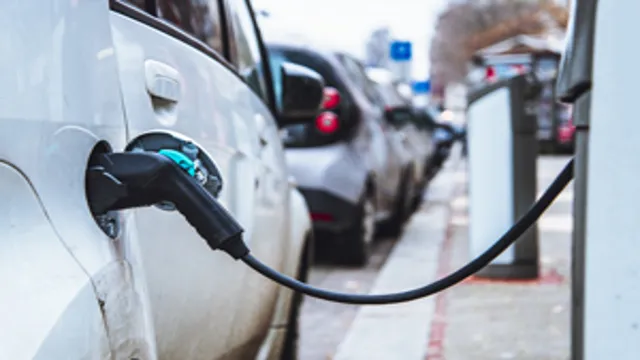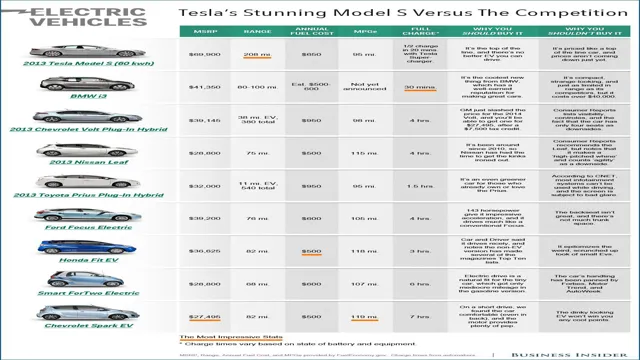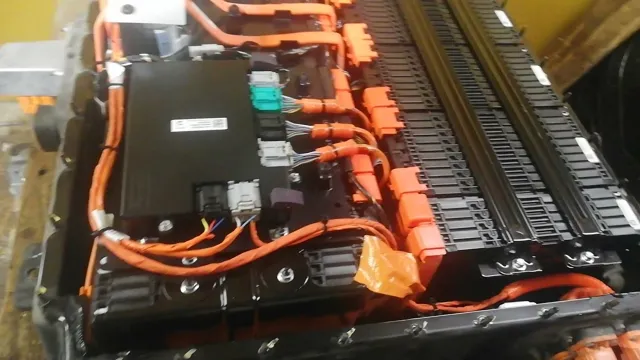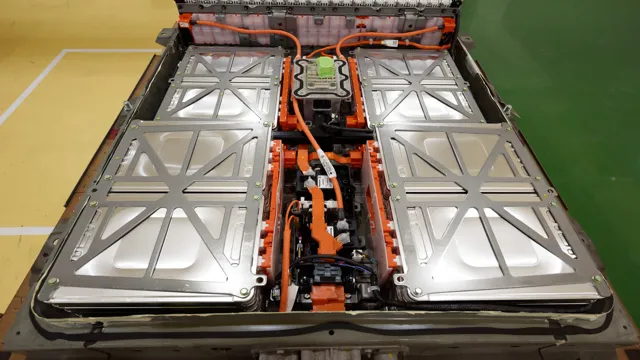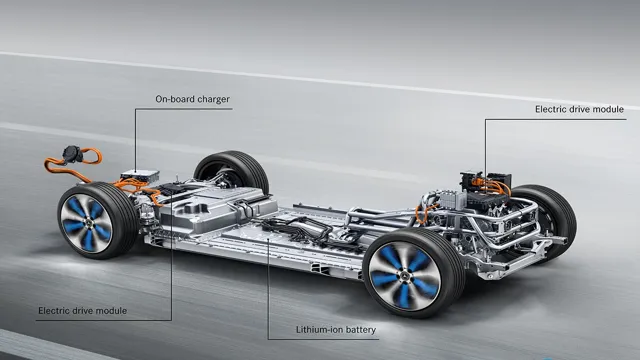Revolutionizing the Automotive Industry with Eco-Friendly Electric Car Batteries
As the world shifts towards more sustainable forms of transportation, electric cars have become increasingly popular. While electric cars reduce carbon emissions and offer a quieter ride, their batteries have raised concerns surrounding their environmental impact. These batteries are the primary source of power for electric vehicles and are composed of various materials that can harm the environment if not properly disposed of.
As the demand for electric vehicles continues to rise, it’s crucial to understand the environmental implications of their batteries and how we can minimize their impact on our planet. In this blog post, we will explore the different components of electric car batteries and delve into their environmental effects.
What Are Electric Car Batteries Made Of?
Electric car batteries are typically composed of lithium-ion cells, which are environmentally friendly and efficient in storing electricity. These batteries consist of a positive and negative electrode, separated by a separator to prevent short-circuits. The positive electrode is typically made from lithium-cobalt oxide, lithium-manganese oxide, or lithium-nickel-cobalt-aluminum oxide, while the negative electrode is made from graphite.
The electrolyte, an essential component of the battery, provides a medium for lithium ions to move between the electrodes during the charging and discharging process. Overall, electric car batteries are designed to have a long lifespan and be highly recyclable, minimizing their impact on the environment. Although they may require a significant amount of energy and resources to manufacture, the benefits of using these batteries in electric vehicles far outweigh the environmental impact of traditional gasoline-powered vehicles.
Lithium-ion and Nickel-Metal Hydride Batteries
Electric car batteries are typically made up of either lithium-ion or nickel-metal hydride batteries. Lithium-ion batteries are the most common and popular type of battery used in electric cars. They are lighter, more energy-dense, and have a longer lifespan than nickel-metal hydride batteries.
This means that they can store more energy in a smaller, lighter package, making them ideal for powering electric cars. Nickel-metal hydride batteries, on the other hand, are older technology and are less commonly used in modern electric cars. However, they are still used in some hybrid vehicles due to their durability and cost-effectiveness.
Overall, the type of battery used in an electric car can have a significant impact on the car’s range, performance, and cost. As such, manufacturers carefully consider these factors when selecting the type of battery to use in their electric cars.
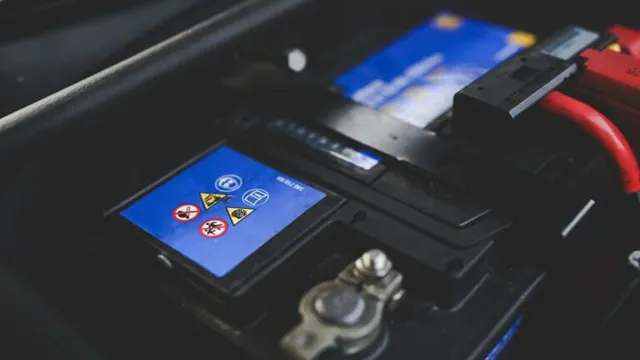
Raw Materials and Manufacturing Process
Electric car batteries are made of several raw materials such as lithium, nickel, cobalt, and manganese. These elements are combined in different ratios to make various types of batteries. For instance, lithium-ion batteries contain a high percentage of lithium, while nickel-cadmium batteries contain nickel and cadmium.
The manufacturing process of electric car batteries involves several stages such as mixing the raw materials, forming electrodes, assembling the battery cells, and finally, testing the battery for quality and performance. The battery cells are then packaged into modules, which are integrated into the electric car. The use of these batteries has increased in recent years due to their high energy density and longer lifespan compared to other types of batteries.
With the increasing demand for electric cars, it is essential to ensure that the raw materials used in their production are ethically sourced and environmentally sustainable to minimize the impact on the environment.
Environmental Impacts of Electric Car Batteries
When it comes to electric cars, the battery is a crucial component that determines its range and performance. However, the production and disposal of these batteries also have significant environmental impacts. Firstly, the production of electric car batteries requires a substantial amount of energy which primarily comes from non-renewable sources.
The extraction and processing of raw materials, such as lithium, cobalt, and nickel, also contribute to air and water pollution and habitat destruction. Additionally, the disposal of these batteries can lead to toxic chemicals and heavy metals leaching into the soil and water. However, there are efforts being made to improve the sustainability of electric car batteries.
For example, recycling programs have been put in place to reuse the materials from old batteries, reducing the need for more mining and processing. As the demand for electric cars continues to grow, it is important to consider the environmental impacts of their batteries and work towards more sustainable alternatives.
Extraction of Rare Earth Metals
Electric car batteries are often touted as a sustainable solution for reducing carbon emissions, but they also have environmental impacts that are often overlooked. The extraction of rare earth metals, such as lithium and cobalt, that are used in these batteries can have serious ecological consequences. Mining for these metals often results in habitat destruction, soil erosion, and deforestation.
The use of toxic chemicals during the manufacturing process can lead to water pollution and harm local communities. Additionally, the disposal of these batteries can release toxic materials into the environment, creating further pollution and health risks. While electric cars have the potential to be a more sustainable alternative to traditional vehicles, it’s important to consider the full lifecycle impact of their batteries on the environment.
Carbon Footprint of Battery Production and Recycling
Electric car batteries are undoubtedly better for the environment than traditional gasoline-powered engines, but the production and recycling of these batteries does come with an environmental cost. The carbon footprint of battery production comes from the energy-intensive processes required to extract and refine the materials used in the battery, such as lithium and cobalt. The impact of battery production on the environment can also vary depending on the location and methods used.
Similarly, recycling electric car batteries is not without its own set of environmental issues. The recycling process can release toxic chemicals into the environment if not done properly and the process itself requires significant energy use. However, as technology improves and battery recycling advances, the environmental impact of electric car batteries will decrease over time.
It is important to consider the full life cycle of electric car batteries, from production to recycling, in order to make informed decisions about their environmental impact.
Disposal and Recycling Processes
The environmental impacts of electric car batteries are a common concern among consumers. While electric cars are often hailed as environmentally friendly, the disposal and recycling of their batteries can have negative environmental impacts. Electric car batteries contain valuable metals like cobalt, nickel, and lithium, which can be recycled and reused.
However, the recycling process is not always straightforward and can generate hazardous waste. Additionally, if electric car batteries are not disposed of properly, they can leak harmful chemicals into the environment. To mitigate these impacts, manufacturers are developing more sustainable disposal and recycling processes.
One example is using closed-loop recycling, which refurbishes batteries for reuse rather than breaking them down completely. As consumers, we can also ensure that we dispose of our electric car batteries properly and seek out manufacturers that prioritize environmentally friendly disposal and recycling practices.
Efforts to Address Environmental Concerns
As the world becomes more aware of the environmental impact of fossil fuels, there has been a significant effort to find alternatives. One area that has been of particular focus is electric cars, and more specifically, the batteries that power them. The production of electric car batteries has had some environmental concerns raised around it, particularly regarding the mining and disposal of materials used in the batteries.
However, there are also efforts being made to address these concerns. For example, companies are investing in research and development to find more sustainable materials for batteries and improve the efficiency of their production. Additionally, there are initiatives to recycle electric car batteries and repurpose the materials to reduce waste.
These efforts are crucial in ensuring electric cars can serve as a viable, and environmentally-friendly alternative to traditional cars, and as improvements in battery technology continue to be made, they will continue to help mitigate potential environmental concerns.
Battery Recycling Initiatives
Battery recycling initiatives have become increasingly popular due to concerns over environmental damage caused by batteries and electronic devices. Efforts are being made to encourage the proper disposal of batteries and ensure that they are recycled in an eco-friendly manner. Many recycling centers are implementing new programs to make battery recycling more accessible for households and businesses.
These programs include curbside recycling, battery drop-off locations, and mail-in recycling options. In addition, companies are working to make batteries more sustainable and environmentally friendly by using less toxic materials and creating longer-lasting batteries. By recycling batteries, we can reduce the amount of toxic waste in landfills and preserve our environment for future generations.
Development of Sustainable Battery Materials
The development of sustainable battery materials has become more crucial than ever before, as environmental concerns have become a top priority for governments and consumers worldwide. This has led to increased efforts to create batteries that are not only efficient but also eco-friendly. Researchers have been working diligently to discover new materials that can be used in battery production, such as graphene, which has shown promise as a lightweight and durable material.
Additionally, recycling programs for spent batteries have been implemented, helping to reduce waste and pollution. These efforts have not only addressed environmental concerns but have also led to the creation of more efficient batteries, which are essential for the growth of the renewable energy sector. As a result, companies are investing in research and development to create the next generation of sustainable battery materials, laying the foundation for a greener and more sustainable future.
Conclusion: The Future of Electric Car Batteries and the Environment
In conclusion, electric car batteries represent a significant step towards a more sustainable and eco-friendly future. While the mining and production processes may have some environmental impact, the benefits of reduced greenhouse gas emissions and dependence on fossil fuels far outweigh the potential harm. Plus, with advancements in technology and the push towards renewable energy sources, electric car batteries will continue to improve and become even more environmentally conscious.
So if you want to help the planet and save on gas money, consider making the switch to an electric car and recharge your love for the environment!”
FAQs
How does the use of electric car batteries benefit the environment?
The use of electric car batteries produces no emissions, thus reducing pollution and promoting a cleaner environment.
Can electric car batteries be recycled?
Yes, electric car batteries can be recycled and their materials can be repurposed for future use.
Are electric car batteries more expensive than traditional car batteries?
Initially, electric car batteries may be more expensive, but they offer long-term cost savings through lower fuel and maintenance expenses.
Do electric car batteries have a shorter lifespan than traditional car batteries?
It depends on usage, but generally, electric car batteries have a longer lifespan, making them a more sustainable choice for vehicle owners.
